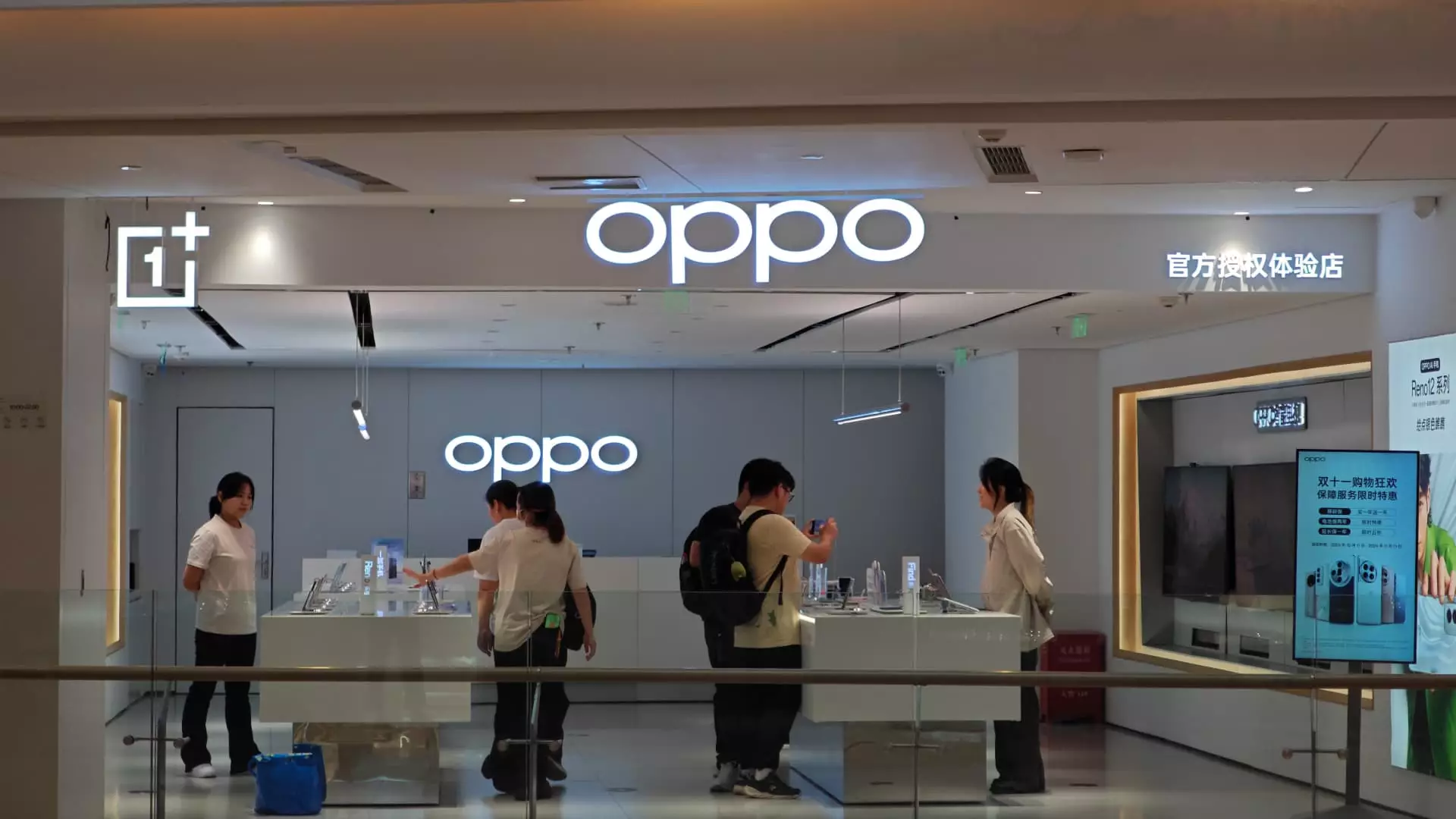In the rapidly evolving landscape of smartphone technology, the intersection of artificial intelligence and user privacy has become a point of significant concern and innovation. Recently, Oppo, a prominent Chinese smartphone manufacturer, unveiled its latest initiative aimed at addressing this critical issue. The company has announced a partnership with Google to develop a private cloud computing system, aptly named the Private Computing Cloud. This novel solution aims to safeguard sensitive user data, allowing the firm to integrate AI functionalities without compromising user privacy.
Oppo’s move bears a notable resemblance to Apple’s strategies in user data protection. Last year, Apple introduced its own cloud intelligence system called Private Cloud Compute (PCC), specifically designed to enhance the privacy of its AI systems. By emulating these privacy-focused tactics, Oppo underscores the significance of user trust in the era of AI. The firm’s Private Computing Cloud will ensure that sensitive information, such as browsing habits and private conversations, remains confidential and is not accessed for AI training purposes—a concern that resonates deeply with today’s privacy-conscious consumers.
Utilizing Google’s Confidential Computing software, Oppo’s new cloud solution employs advanced encryption techniques that effectively render user data invisible to third parties. This formidable technological framework not only reassures users about the security of their information but also signals Oppo’s commitment to ethical AI practices. By separating user data from AI training processes, Oppo creates a digital environment where privacy takes precedence—an essential aspect in a landscape fraught with privacy infringements.
While the primary focus of Oppo’s initiative is on privacy, the company is also rolling out an array of new AI capabilities. These features include call summarization, real-time translation, and voice transcription, which are all designed to enhance user experience. Furthermore, Oppo is embedding Google’s Gemini foundation models into various applications such as Notes, Calendar, and Clock, broadening the scope of AI assistance for its users. This represents a strategic move to enrich smartphone functionalities while maintaining a stronghold on data privacy.
Currently, Oppo ranks as the sixth-largest smartphone manufacturer in China, holding a 14% market share as of recent reports. This positioning provides the company with a substantial base to implement its innovative privacy solutions. Interestingly, the competitive landscape is heating up, with rival Chinese smartphone firms, notably Honor, also forging partnerships with Google, hinting at a sector-wide trend toward enhanced AI capabilities combined with robust privacy measures. As privacy concerns related to AI technologies mount, Oppo’s proactive approach may well set it apart in the burgeoning smart device market.
In addition to the immediate launch of its Private Computing Cloud, Oppo has set ambitious targets for expanding its AI offerings. The company aims to deliver next-generation AI features to a staggering 100 million users by 2025, effectively doubling its initial goal for 2024. With developments in Google’s Gemini 2.0—a model reportedly capable of autonomous task execution—Oppo’s strategy promises to reshape how mobile technology interacts with users while simultaneously prioritizing their privacy preferences.
Oppo’s recent announcements not only reflect a commitment to addressing pressing privacy concerns but also signify a thoughtful approach toward integrating advanced AI technologies into daily smartphone usage. By balancing user sensitivity with innovative capabilities, Oppo is positioning itself as a leader in privacy-preserving technology. As mobile users become increasingly vigilant about their digital footprint, such initiatives could play a pivotal role in shaping trust and loyalty in the smartphone market. The coming years will undoubtedly reveal how effective these strategies will be in maintaining consumer confidence and driving growth in an intensely competitive industry.

